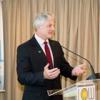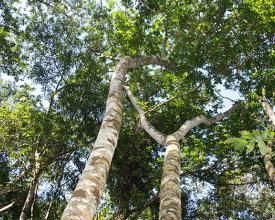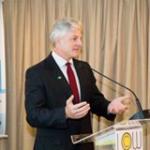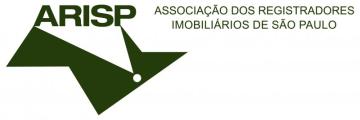
Financing solutions that protect nature and wildlife through pooling CSR - Green Farm CO2FREE
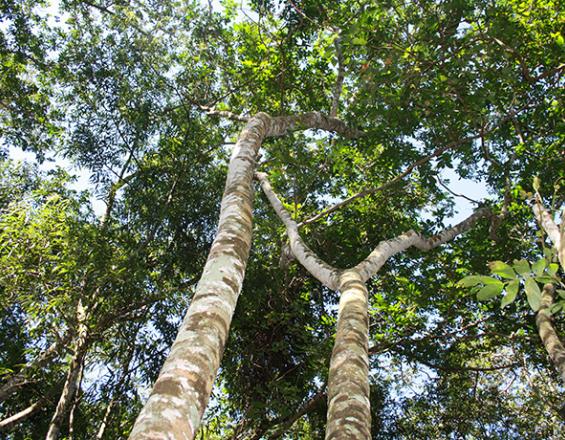
Green Farm CO2FREE looks into financing project activities that can contribute to creating life. Porto Belo Farm used to be a ranch with thousands of cattle. At Porto Belo Farm the project introduced breeding of wild animals (especially those threatened by extinction), nurseries for native and introduced tree species, rehabilitation of degraded areas and wild animals from trafficing, farming of pollinators and others. Those activities intend to collaborate with the federally protected area it surrounds and its neighbors. The project includes children as a fundamental part of its activities; it develops specific activities for enjoyment, recreation, and education, looking into creating a bond between them and the ecosystem that surrounds them.
Contexto
Défis à relever
In the region, 99% of deforestation is due to agriculture (soya, sugar cane, etc.) and farming (cattle). All neighbors in similar situations had to adhere to a national plan called PROVARZEA, which drained their properties wetlands for agriculture and farming. Porto Belo Farm, where the Green Farm CO2FREE project is currently operating, is located at the buffer zone of Ilha Grande National Park. The Park is under pressure from land use change, including ranching, fishing, and other illegal activities. Fisheries population depletion and sand banks along Parana River, which surrounds the property, are results of poor soil conservation and biodiversity cultivation practices. Species like the Harpia eagle and Mutum de Penacho have disappeared from the park and the region and others are threatened. There is little knowledge, especially among youth, about the jungle and wildlife that used to reign over the region, the so-called “Parana Jungle”.
Ubicación
Procesar
Summary of the process
The existence of the CSR club allows companies to acquire shares of a large impact on both marketing and the activity of the nature project. The local management of ecosystem services provides credits that companies can use to compensate for their negative impacts. The stamp identifies the ones participating at Green Farm CO2FREE CSR.
Building Blocks
Prime Property Fraction of CSR program
Green Farm CO2FREE (www.greenfarmco2free.com.br) developed the prime property fraction concept to conservation, creating a CSR club for participating companies. With that approach at finance, it invests on providing ecosystem services to participating companies, including carbon, water, biodiversity, green marketing and others.
Enabling factors
a prime property located within the buffer zone of a National Park, well preserved and large enough to allow implementing of large scale conservation and enhancement of ecosystem services to companies and other interested parties. CSR programs under planning, development or implementation phase by companies and other interested parties
Lesson learned
Companies are willing to invest on CSR programs but they lack the adequate knowledge / skills to identify, amongs available opportunities, the ones with best results in terms of both, marketing and environment positive impacts. There is a major effort on marketing your own project and its benefits before reaching the right audhience, and the decision must come from high adminstrative levels. usually managers and other personal/staff tend to avoid participation on long term thrird parties project activities due to the sense of self=preservation (when the external agent is sucessfull it feels like the internal staff is no needed anymore). in order to avoid this we now look into interacting and letting the solution be designed by internal staff itself, making them project owners.
Transparency, Accountability, Accuracy, Completeness and Third Party Independent Registry
At Porto Bonito Farm, the project promotes wildlife breeding, wild animals rehabilitation and releasing, recovering of fisheries, seed selection, nursery and planting of native trees species of local occurrence, farming of pollinators, rehabilitation of scenic beauty, environmental education and recreation for visitors, partners, participating companies, students and others. Porto Bonito was first approached in 2008 – it used to be a cattle ranch, and in 2012 the project started accepting participants. Staff is trained to measure, report and verify MRV the environmental credits being generated from management practices, as the forest carbon credits. The project promotes reforestation at grassland and degraded areas to restore biodiversity and increase carbon sequestration and storage, generating forest carbon credits. Those credits transferred to participating companies. All process registered independently at the Mato Grosso State Platform for Business with Environmental and Ecosystem Goods and Services (www.pnbsae.com.br).
Enabling factors
Staff with capacities to develop MRV methodologies and local infrastructure allowing for the training of consultants and auditors. the existence of the platform for independent registry at Mato Grosso State. local infrastructure for project difusion and dissemination, facilities allowing for visitors to access the location and sites.
Lesson learned
It is necessary to provide specific training and needed resources to make climate change a palatable theme to professionals and general public. we did various training sessions and participate at many different events over 5 years of activities implementation before reaching a level of common understading with the independent registry and having a smooth flow of documents and process. much attention is need on articulating and promoting adequate partnerships and investments must be done towards promoting joint initiatives, meetings, conferences and similar difusion and dissemination activities.
Impacts
The project reached an audience of 208,000 viewers in all media forms in 2016, which has increased from 23,362 visitors in 2012 (90% children). The visitors where at the facilities learning about biodiversity and ecosystem services farming, some 1,4 million tCO2e have been pre-inventoried, some 40,000 tCO2e have been registered and transferred to participating companies which now use CO2FREE stamp at their corporate materials. More than 300 billion liters of water have been incorporated clean to Parana river basin. Almost 4 million individuals of fish, mastofauna, herpetofauna and avifauna released back into nature. Currently the farm has some 500,000 pollinator bees. The project implemented facilities at Porto Belo Farm and developed MRV methodologies for biodiversity credits creation from 5 endangered species. Close to 1 million trees from native species of local occurrence were planted within Porto Belo Farm, neighbors, cities and distributed to local farmers interested on reforestation.
Beneficiaries
There are twenty municipalities in the Zone with 350,000 inhabitants and a total area of 30,000 km2. The biome of the Atlantic Forest and the water resources within the region receive a large charge.
Sustainable Development Goals
Story
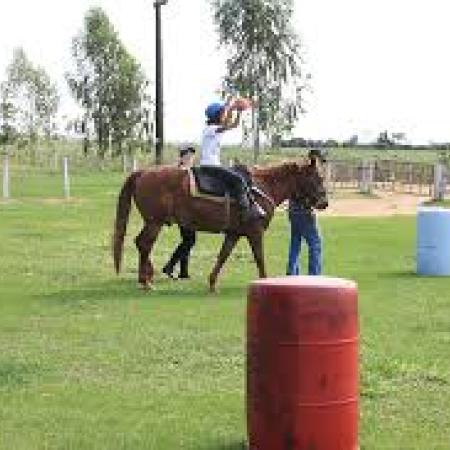
The local association of family and friends of special children needed a place to promote open air activities and Green Farm wishes to contribute to local society. as a result in 2017, together with Gazin a major distribution chain already partner with Green Farm, a facility and horses to Equotherapy were in place to attend children within the program. Now regularly APAE visits Green Farm and the children have the opportunity to engage with the horses and are estimulate to further develop their social skills and interaction.
